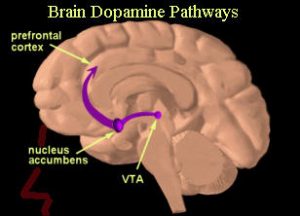Research Looks At The Cycles Of Over Eating And Obesity
 “New research provides evidence of the vicious cycle created when an obese individual overeats to compensate for reduced pleasure from food. Obese individuals have fewer pleasure receptors and overeat to compensate,” according to a study by University of Texas at Austin senior research fellow and Oregon Research Institute senior scientist Eric Stice and his colleagues.
“New research provides evidence of the vicious cycle created when an obese individual overeats to compensate for reduced pleasure from food. Obese individuals have fewer pleasure receptors and overeat to compensate,” according to a study by University of Texas at Austin senior research fellow and Oregon Research Institute senior scientist Eric Stice and his colleagues.
Eric Stice’s Evidence
Stice provides evidence that overeating may weaken the response of the pleasure receptors in the brain. Therefore, diminishing the rewards a person gets from overeating. The consumption of food is related to the release of dopamine. The degree of pleasure derived from eating correlates with the amount of dopamine released.
According to the evidence, “obese individuals have fewer dopamine (D2) receptors in the brain relative to lean individuals and suggests obese individuals overeat to compensate for this reward deficit. People with fewer of the dopamine receptors need to take in more of a rewarding substance — such as food or drugs — to get an effect other people get with less.”
Conclusion
These results will be important when developing programs to prevent and treat obesity.
http://www.sciencedaily.com/releases/2010/09/100929171819.htm
 Eating Disorder Self Test. Take the EAT-26 self test to see if you might have eating disorder symptoms that might require professional evaluation. All answers are confidential.
Eating Disorder Self Test. Take the EAT-26 self test to see if you might have eating disorder symptoms that might require professional evaluation. All answers are confidential.